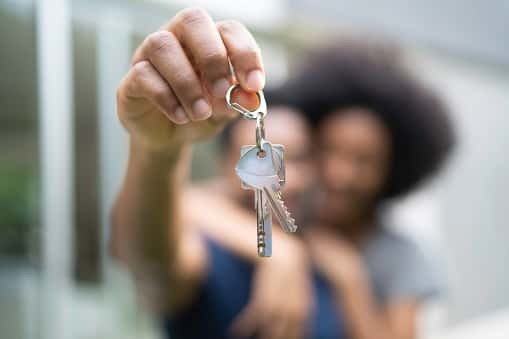What is collateral for a mortgage?
Lenders require collateral to ensure you won’t default on your loan

While many people use mortgages to finance their home purchase, it’s essential to choose one that’s right for your needs and how you prefer to manage your finances. Many people select mortgages with 30-year repayment terms. However, if you don’t like to have outstanding debt, you may be able to get a mortgage with a term as short as 10 years.
You’ll usually pledge the home you’re purchasing as collateral for the mortgage. That means if you don’t make your payments as agreed, you risk losing your home to foreclosure. So, no matter the mortgage you choose, ensuring you can afford the monthly payments is crucial. In doing so, you’ll protect yourself from potentially losing one of your most valuable assets.
Key insights
- Collateral is property pledged to a lender as security for a loan, such as cash held on deposit with a bank, stocks, bonds, cars, houses or land.
- Lenders can take the collateral you pledge as security for the loan, sell it and use the proceeds to repay your loan if you fail to pay as agreed.
- Mortgages are typically secured by the property they’re used to finance.
How does a mortgage work?
A mortgage is a loan used to finance real estate, such as the home you plan to live in as your primary residence, a vacation home or even a rental property.
Repayment terms on mortgages commonly range from 15 to 30 years, though some lenders may offer terms as short as 10 years or as long as 40 years. Interest rates are typically lower on mortgages with shorter terms. However, you must be able to afford a higher payment of principal plus interest if you choose a shorter-term mortgage.
When getting approved for a mortgage, you must show you’re willing and able to repay the loan. To evaluate this, lenders commonly review your debt-to-income (DTI) ratio and credit score. The better qualified you are, the better the mortgage rates and terms you can get.
Lenders commonly require DTIs of no more than 36% to 43% and credit scores of at least 620.
Lenders also consider the size of your down payment and the value of the property you’re financing when qualifying you for a mortgage. Loans with larger down payments and lower loan-to-value (LTV) ratios are considered less risky and carry better rates and terms.
Since mortgages often have much higher loan amounts and longer repayment terms than other types of loans, these loans are backed by collateral — usually, the property the mortgage is financing. If you don’t repay the loan as agreed, your lender can use the collateral to repay it.
» MORE: Types of mortgage loans
What is collateral?
Collateral is property offered to a lender as security for a loan. If the secured loan isn’t repaid as agreed, the lender can take possession of the collateral and use the proceeds to pay off the loan and any associated costs or fees, such as attorney’s fees and past-due interest. Secured loans are less risky than unsecured ones, allowing lenders to offer better rates and terms.
Some common types of loans that require collateral include car loans, RV loans, boat loans, mortgages, home equity loans and home equity lines of credit (HELOCs).
“When you take out a mortgage to buy a house, the house itself becomes the collateral for the loan,” said Dennis Shirshikov, head of growth at Awning. “It's a bit like saying, ‘Hey, I want to borrow money to buy this house, and if I can't pay you back, you can take the house.’”
Types of collateral
You can pledge almost any type of financial or physical property as collateral for a loan as long as the lender can reasonably access and seize the property if you fail to meet the terms of your loan agreement. For instance, it may be more difficult for a lender to access or take possession of property you own in a foreign country than one in the U.S.
Common examples of collateral include:
- Houses
- Land
- Other types of real estate (e.g., office buildings, apartments)
- Cars
- Recreational vehicles
- Boats
- Motorcycles
- Cash on deposit with a financial institution
- Publicly traded stocks or bonds
Besides evaluating how easily the collateral you pledge can be accessed, lenders also consider the collateral's value in relation to the loan's size. The difference between the collateral’s value and the total loans on the property is known as your equity.
Let’s say you have a mortgage secured by your primary residence. Your home has an appraised value of $300,000, and over the years, you’ve paid your mortgage balance down to $240,000. In this case, the equity you have in the home would be $60,000 (the appraised value of $300,000 minus your loan balance of $240,000).
It's a bit like saying, ‘Hey, I want to borrow money to buy this house, and if I can't pay you back, you can take the house.’
One way you can build equity is through the down payment you make when you purchase the property. For example, let’s say you bought the home for $300,000, put 20% cash ($60,000) toward the purchase and got a $240,000 loan. You would have $60,000 of equity in your home on the date of the purchase.
Another way you can build equity is by your property’s value appreciating (increasing) over time. Say you bought your home for $300,000, paid the mortgage balance down to $240,000, and your home is now appraised at $400,000. In this case, you’d have $160,000 of equity ($400,000 minus $240,000).
No matter how the equity was created, lenders consider loans with more equity less risky. If they have to sell or liquidate the collateral to pay off your loan, there’s a better chance they’ll get enough money to cover your loan balance (plus any costs or fees) if there’s more equity.
What happens if you default on your home loan?
If you default on your home loan, the lender can seize the property you’ve offered as collateral (your home) and use the proceeds to pay off your loan balance and any associated costs or fees. This is typically done through a legal process called foreclosure. However, you may be able to voluntarily give the home’s deed to your lender in lieu of foreclosure.
The general foreclosure process looks something like this, although it varies by state:
- Your loan goes into default. If you miss making a single payment, your loan is technically in default. Your lender will contact you by phone or in writing if you miss one payment, continue to follow up by phone if you miss a second payment and send a demand letter giving you 30 days to bring your loan current after a third missed payment.
- The preforeclosure process begins. If you don’t repay the past-due balance or work out another payment arrangement before the 30-day notice period expires, you’ll be referred to your lender’s attorney, who will schedule the date your home will be sold via a sheriff’s sale or public trustee’s sale.
- The foreclosure process is completed. If the total amount you owe, including attorney’s fees, isn’t paid or you don’t work out other arrangements with your lender by the sale date, you’ll lose your home to foreclosure. Depending on your state, a redemption period may give you extra time to pay what you owe before the foreclosure is finalized.
Depending on your situation, your lender may be willing to work with you if you can’t make the payments on your home loan.
“Requesting loan modifications or refinancing can help prevent foreclosure and protect the property,” said Loren Howard, founder of Prime Plus Mortgages.
The key is communicating with your lender and seeking help as early as possible. Also, a housing counselor may be able to help you find a solution to avoid foreclosure. Your lender may be able to refer you to a housing counselor. Many credit counseling agencies also provide housing counseling.
Most importantly, remember that you’re not alone in this process. There are resources available to help you avoid going into default and losing your home.
FAQ
Is collateral the same as a down payment?
No, the down payment is the amount of money you’re required to put toward the purchase of your home for the lender to give you the mortgage. Collateral is an asset you pledge to your lender (e.g., the home you’re buying) when you get the loan. Your lender can sell the collateral and use the proceeds to repay your loan if you don’t pay as agreed.
Can you use your house as collateral for other loans?
Maybe. You may be able to use your house as collateral for a home equity loan or HELOC, even if you’re already using your home as collateral for an existing mortgage. If you own your home free and clear (meaning, there’s no debt on it), you might also be able to use it as collateral for a secured installment loan, a line of credit or even a business loan.
Will a lien affect your credit score?
Liens against property you own for loans you take out don’t show up on your credit report or affect your credit score — only the loan is reported. However, if you default on the loan and lose the collateral to foreclosure or repossession, the balance you owe after the collateral is sold could appear on your credit report and hurt your credit score.
Tax liens also aren’t reported to credit bureaus and won’t affect your credit score. However, lenders may not be willing to lend to you if you have past-due taxes, so you should quickly resolve this type of lien. If you don’t know how to fix this issue, speaking with a credit counselor may be a good place to start.
Bottom line
When you get a mortgage, you’ll usually need to offer the property you’re financing as collateral for the loan. Since your lender can take the collateral if you don’t repay the loan as agreed, you’ll typically get better rates and terms than with an unsecured loan. However, you risk losing the property if you don’t follow through with the loan agreement.
To protect yourself from losing your home to foreclosure, make sure you can easily afford the monthly payment before getting a mortgage. If you face financial hardship, contact your lender as soon as possible to work out a payment arrangement.
Article sources
- Consumer Financial Protection Bureau, " Find a housing counselor ." Accessed June 21, 2023.
- Consumer Financial Protection Bureau, " Removal of public records has little effect on consumers’ credit scores ." Accessed June 19, 2023.
- Experian, " Tax Liens Are No Longer a Part of Credit Reports ." Accessed June 19, 2023.
- Experian, " What Is a Lien? " Accessed June 19, 2023.
- H&R Block, " Does IRS Debt Show on Your Credit Report? " Accessed June 19, 2023.
- IRS, " Understanding a Federal Tax Lien ." Accessed June 19, 2023.
- U.S. Department of Housing and Urban Development, " Are You at Risk of Foreclosure and Losing Your Home? " Accessed June 21, 2023.
You’re signed up
We’ll start sending you the news you need delivered straight to you. We value your privacy. Unsubscribe easily.
